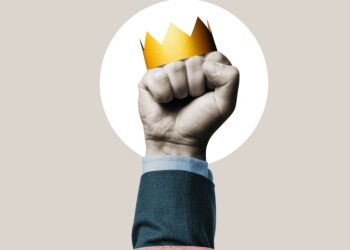To some it might seem like a relatively obscure Americanism. Even in America, it’s only been a federal holiday since yesterday.
But Juneteenth, celebrated on 19 June, presents an important opportunity to take stock of the systemic racism and intolerance that have long cut across international borders.
The particular event being commemorated foreshadowed the disappointing and disjointed reckoning with racism that unfolded in subsequent years. On 19 June 1865, more than two years after the Emancipation Proclamation had been issued, Black people in Galveston, Texas were belatedly informed of their freedom by soldiers reading from a general order as they marched through town.
In a sign of things to come, that order advised “freedmen” to “remain quietly” at home – presumably a slave plantation – and warned they would “not be supported in idleness.” The 13th Amendment, which abolished slavery throughout the US, was ratified a few months later – though 19 June has come to be recognized as the day marking the end of perhaps the bleakest chapter in the country’s history.
Juneteenth was celebrated within Texas as early as 1867, and by the 20th century celebrations had also become prominent in neighbouring states. 19 June became a state holiday in Texas in 1979, and the day is now widely observed elsewhere. The push for federal holiday status gained momentum amid a national racial reckoning last year. In the end, the lone senator blocking passage realized it was not a fight that would win him allies.
The enshrining of 19 June as a federal holiday comes at a time when lawmakers are trying to restrict voting rights for people of colour, some efforts are underway to gloss over systemic racism in school curricula, and others are seeking reparations for slavery and the abuse that extended long past 19 June 1865.
Below is a visualization of the accumulated lynchings of Black people in the Southern US between 1882 and 1930 on a monthly basis. These public executions followed accusations of wrongdoing but no due process; they served to inflict terror and exercise control.
Last year, the UN General Assembly adopted a resolution calling for “concrete action” for the elimination of racism, racial discrimination and xenophobia. It cited an alarming rise in hate speech and incitement to violence.
Around the world, unsettling developments have served to remind us that racism is a shared problem – such as a recent increase in anti-Asian racist violence fueled in some instances by leaders looking for someone to blame for the pandemic.
In Europe, an “alarming spike” in Islamophobia has been observed amid a normalization of extreme right-wing rhetoric, and people of colour continue to deal with systemic racism.
Government statistics in the UK, for example, have shown that just 2% of white British households are overcrowded, compared with 24% of Bangladeshi and 16% of Black African households; they’ve also registered a 68% home-ownership rate for white British households, compared with 20% for Black African households.
Racism can also creep into popular culture and sport; ugly incidents have marred high-profile soccer matches including a Europa League qualifier earlier this year between Czech and Scottish sides.
Popular culture in China has also played on racist imagery. One infamous advertisement for laundry detergent showed a woman “washing” her Black boyfriend by turning him into a fair-skinned Chinese man.
Australia, too, has been home to embarrassing episodes including recurring reports of people and performers wearing blackface.
Ultimately, confronting our worst instincts is necessary to learn from our past and do better. Below is another visualization of lynchings in the US from 1882 to 1930; to be sure, non-Black Americans (represented by non-red dots) were also victims, though this type of vigilante justice was clearly disproportionately meted out to people of colour.
For more context, here are links to further reading from the World Economic Forum’s Strategic Intelligence platform:
- One idea for a good way to celebrate Juneteenth in the US, according to this piece: elect more officials willing to end the racist practice of mass incarceration. (Brookings)
- The author of this piece recommends reading one passage in particular from Ralph Ellison’s posthumously-published novel “Juneteenth” this weekend. (New Yorker)
- This specialist in diversity and inclusion at Wellcome, the science and health-focused charitable foundation based in London, describes her “surreal” but successful efforts to nudge the organization to commit to tackling racism. (Nature)
- When Australia barred citizens from returning home from COVID-19-ravaged India last month, critics noted that similar bans were never imposed on travel from the UK or US during their surges and called the measure racist and un-Australian, according to this report. (IDN)
- Black and white soccer players are discussed in troublingly different ways by the media, according to a recent study. As one of its UK-based authors details here, Black players are overwhelmingly praised for physical prowess, and white players for intelligence and character. (The Conversation)
- Juneteenth as a rallying cry for reparations – according to this analysis, bondage didn’t disappear for Black Americans with the end of slavery and was instead repackaged in ways that call for a financial reckoning. (Brookings)
- What we cannot not know in America – the 400 Years of Inequality Project was created to call organizations to observe the 400th anniversary of the first Africans landing in Jamestown in 1619. (Frontiers)
On the Strategic Intelligence platform, you can find feeds of expert analysis related to Systemic Racism, Human Rights and hundreds of additional topics. You’ll need to register to view.
By Andrew Berkley & John Letzing
About the authors: Andrew Berkley is Lead, Immersive Technology and Content, World Economic Forum; John Letzing is Digital Editor, Strategic Intelligence, World Economic Forum.












